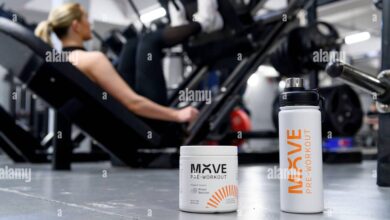
Probiotics are beneficial bacteria that are commonly found in certain foods or available as supplements. These microorganisms offer numerous health benefits when consumed regularly. Probiotic supplements and probiotic foods are popular choices for individuals looking to support their digestive health and overall well-being. Incorporating probiotics into your diet can provide a natural and effective way to promote a healthy gut microbiome. ?
-
What Are Probiotics
Probiotics are living microorganisms that can provide health benefits when consumed in adequate amounts. These can include bacteria or yeast, similar to those naturally found in the body, particularly in the digestive system. Probiotics are commonly found in fermented foods like yogurt, as well as in supplements and food additives, often used to promote healthy digestion.
Probiotics vs. Prebiotics
Probiotics are different from prebiotics. Prebiotics are food ingredients that remain undigested in your gastrointestinal tract and serve as nourishment for beneficial bacteria in the colon. Foods high in fiber or certain kinds of starch, such as oatmeal, bananas, berries, asparagus, and beans, are rich in prebiotics. Prebiotic supplements are also available. Products combining prebiotics and probiotics are known as synbiotics.
Types of Probiotics
Probiotic organisms are diverse and found in various foods and supplements. Common types include:
- Lactobacilli (e.g., Lactobacillus acidophilus, Lactobacillus GG)
- Bifidobacteria (e.g., Bifidobacterium bifidus)
- Yeasts (e.g., Saccharomyces boulardii)
Each strain has unique effects. For example, one may help with diarrhea, while another might address vaginal infections. Consult your healthcare provider before starting any probiotic supplement to ensure it meets your specific needs.
Benefits of Probiotics
Probiotics can alter the balance of microorganisms in the intestines, improving the microbiome. When this balance is disrupted (“dysbiosis”), probiotics can restore harmony by increasing helpful bacteria and reducing harmful ones.
General Benefits
Probiotics may:
- Help maintain or restore microbiome balance.
- Produce beneficial substances.
- Influence immune responses.
Conditions That May Benefit
Research indicates probiotics can aid:
- Irritable bowel syndrome (IBS).
- Certain types of diarrhea.
- Ulcerative colitis and pouchitis.
- Acne and eczema (in children).
- Preventing antibiotic-associated diarrhea.
Additional research explores their potential for treating:
- Stomach ulcers (H. pylori-related).
- Various infections (e.g., urinary tract, vaginal, sinus, gastrointestinal).
- Dental diseases.
- Allergies and liver diseases.
Probiotics and Weight Loss
The gut microbiome plays a role in energy metabolism, which may affect weight management. Studies reveal:
- Obese individuals have different gut microbes compared to lean individuals.
- Some studies show probiotics promote weight loss, while others show no effect or even weight gain.
Results vary due to differences in study designs and probiotic strains used.
When to Take Probiotics
Many people include probiotics in their diets naturally through foods like yogurt, kefir, or kombucha. For supplements or higher probiotic intake, consult your doctor. Your doctor may recommend probiotics to:
- Prevent recurrent infections.
- Restore gut health after antibiotics or illness.
- Address gut health issues that respond to probiotics.
Probiotic Dosage
There is no universal dosage for probiotics due to variations in strains and products. Labels often indicate colony-forming units (CFUs), which measure live organisms. Supplements commonly range from 1 billion to 10 billion CFUs per dose, though higher doses are available. Always check expiration dates and storage requirements to ensure effectiveness.
Probiotic Foods
Probiotics are naturally present in some fermented foods, though processing can reduce their effectiveness. Look for labels indicating “live, active cultures” and specific strains. Examples include:
- Yogurt (dairy or nondairy).
- Kefir.
- Sauerkraut.
- Kimchi.
- Tempeh.
- Miso.
- Kombucha.
- Pickles (brined in water, not vinegar).
Pasteurization often destroys probiotics, so choose fresh or homemade options when possible.
Signs That Probiotics Are Working
If probiotics are effective, you may notice improvements such as:
- More regular bowel movements.
- Reduced bloating and gas.
- Fewer episodes of illness (in cases of general wellness use).
Side Effects of Probiotics
Probiotics are generally safe, but potential issues include:
- Side Effects: Gas and bloating, particularly when starting probiotics.
- Interactions: Probiotics can interfere with medications, such as antibiotics or immunosuppressants. Consult your doctor.
- Risks: Individuals with weakened immune systems, intestinal disease, or excessive bacteria should avoid probiotics without medical advice.
Takeaways
Probiotics are beneficial bacteria and yeasts that support digestive health and may help with various conditions. However, consult your doctor before starting supplements or making major dietary changes.
Frequently Asked Questions (FAQs)
Is it good to take probiotics daily?
Yes, regular intake is recommended as probiotics don’t survive indefinitely in the body.
What food is highest in probiotics?
Yogurt is a popular choice, but other options like kimchi, kombucha, and sauerkraut also provide probiotics.
Who needs probiotics most?
Probiotics are particularly useful for individuals with digestive issues, those recovering from illness or antibiotics, or anyone looking to maintain gut health.



